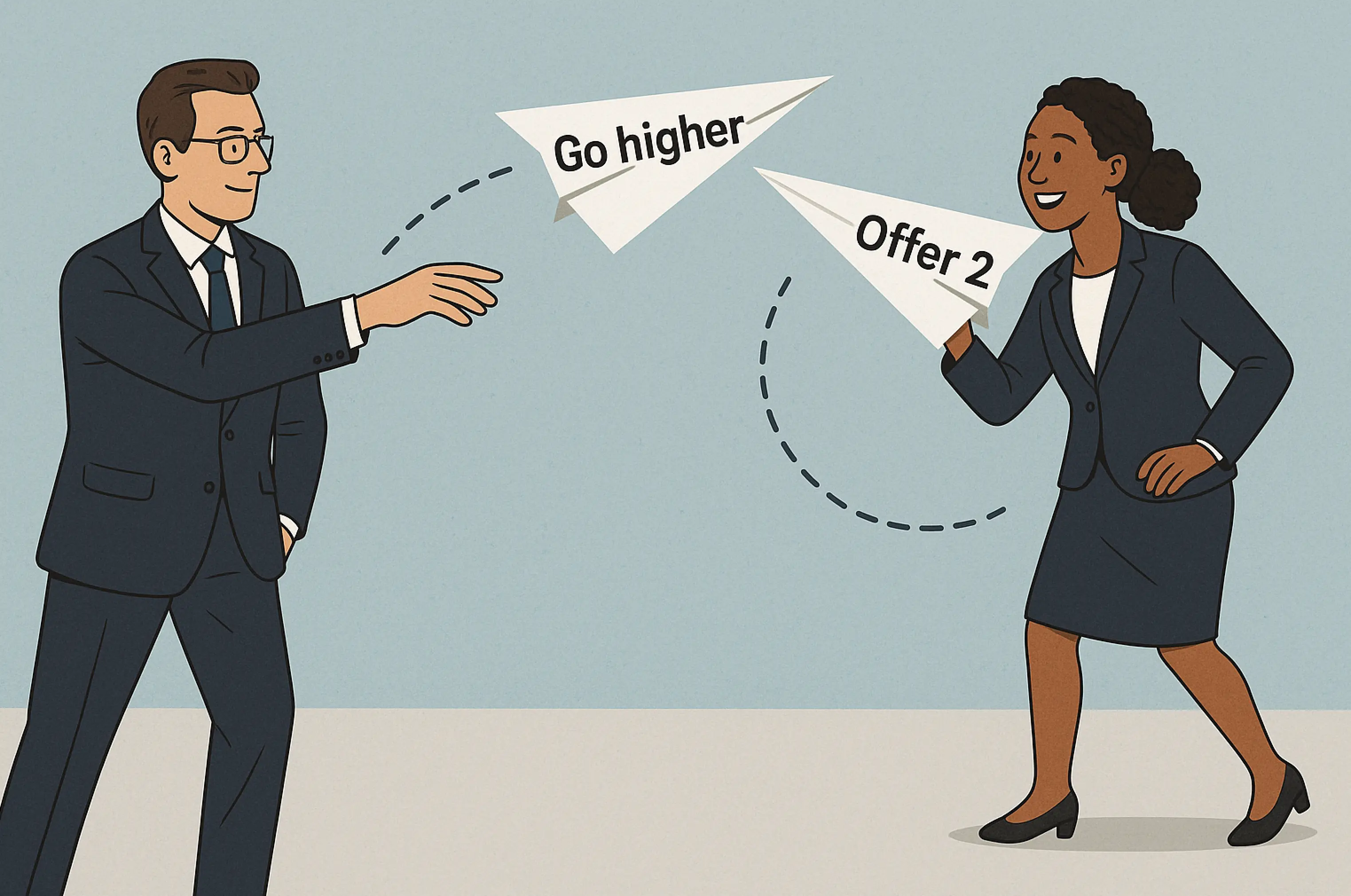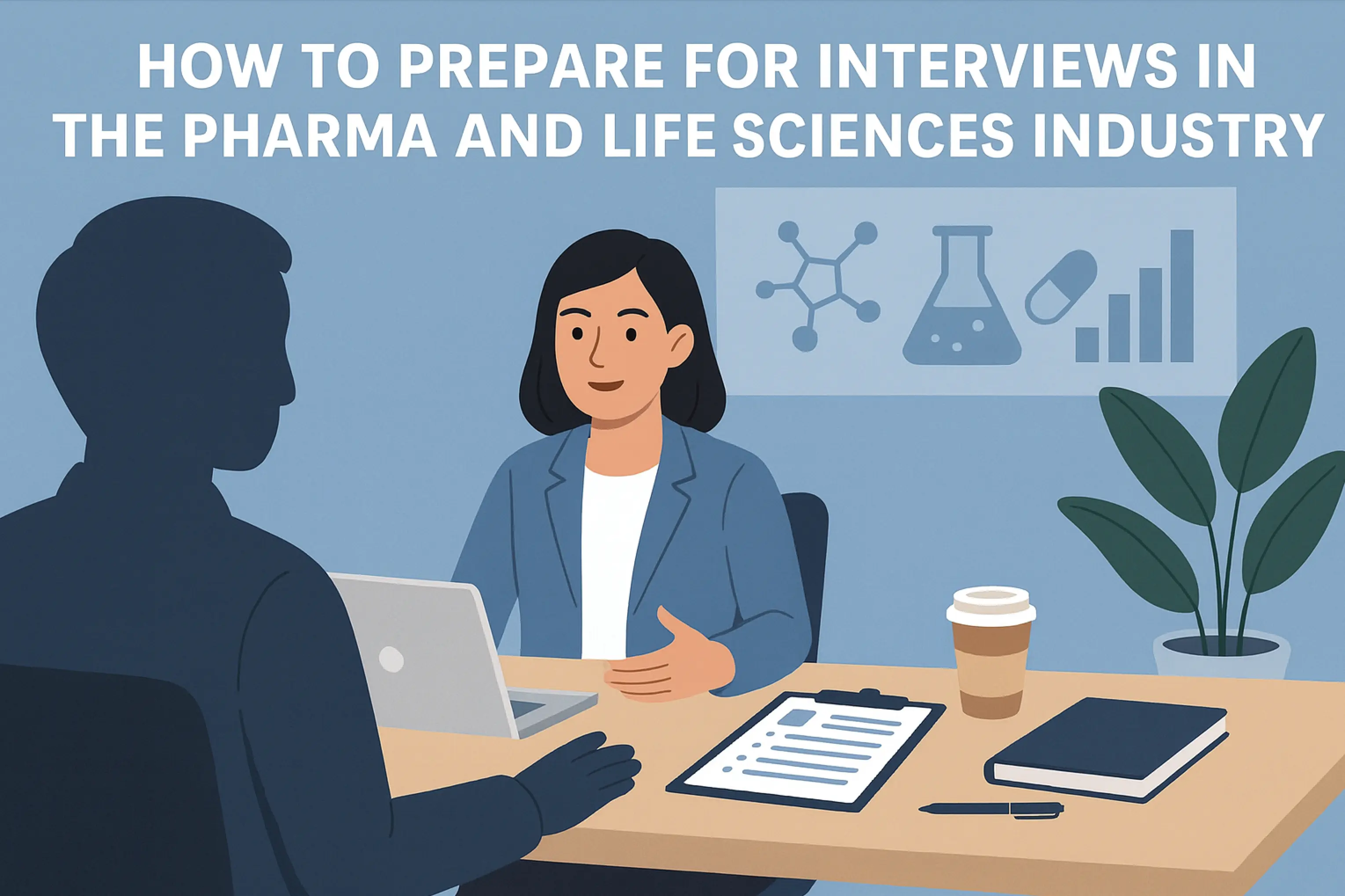How to Prepare for Interviews in the Pharmaceutical and Life Sciences Industry
The pharmaceutical and life sciences industry is one of the most competitive job markets in the world. Candidates aren’t just evaluated on their technical know-how, but also on their ability to collaborate, adapt, and align with a company’s mission to improve patient outcomes. Whether you’re a graduate interviewing for your first lab role or an experienced executive aiming for a senior position, preparation makes all the difference.
Here’s a practical guide to help you succeed.
Universal Best Practices
1. Research deeply.
Employers expect more than surface knowledge. Study the company’s therapeutic focus, recent clinical trial results, pipeline progress, and even competitor activity. When asked “Why do you want to work here?”, your answer should connect your skills and motivations to the company’s mission.
2. Prepare your stories.
Expect both technical and behavioral questions. Use the STAR method (Situation, Task, Action, Result) to structure your answers. For example, if asked about a time you solved a problem under pressure, explain the context, your role, what you did, and the measurable outcome.
3. Balance hard and soft skills.
Pharma organizations run on cross-functional collaboration. Highlight moments when you worked across departments, adapted to new challenges, or resolved conflicts. Technical knowledge gets you noticed; teamwork and communication help you stand out.
4. Quantify your achievements.
Numbers add credibility. Instead of saying you “improved efficiency,” specify: “I redesigned the QC process, cutting batch deviations by 20%.” Instead of “helped grow enrollment,” say “increased trial enrollment by 30% in six months.”
5. Ask smart questions.
Prepare 5–10 questions in advance. Great examples:
- “What challenges has this team faced recently, and how would this role help address them?”
- “How do you define success in the first 6–12 months?”
- “What opportunities are there for cross-functional collaboration?”
These questions show curiosity, initiative, and an understanding of the bigger picture.
Tailoring by Function
Research & Development (R&D)
- Be ready to explain your experimental design approach and problem-solving under pressure.
- If asked to present past research, focus on clarity, relevance, and what impact your work could have on patients.
- Show you can bridge science and application - employers value scientists who understand not just how research works, but why it matters.
Regulatory Affairs
- Expect questions about submissions, interactions with agencies (FDA, EMA, MHRA, etc.), and knowledge of guidelines.
- Demonstrate how you stay current with evolving regulations and how you’ve successfully incorporated changes into past projects.
- Emphasize communication - regulatory staff often translate complex requirements for non-experts.
Commercial (Sales/Marketing)
- Show strong product and market knowledge. Be prepared to discuss competitive positioning.
- Expect roleplays around handling objections or persuading sceptical stakeholders.
- Highlight metrics: exceeding sales targets, increasing market share, or launching campaigns that generated measurable ROI.
Manufacturing & Quality
- Strong grasp of Good Manufacturing Practice (GMP) is essential. Be prepared to answer compliance questions and scenario-based challenges.
- Share examples of corrective and preventive actions (CAPA) you’ve led or inspections you’ve supported.
- Demonstrate process improvement skills (e.g., Lean or Six Sigma), framed in terms of tangible outcomes.
Clinical Operations
- Emphasize Good Clinical Practice (GCP) and unwavering focus on patient safety.
- Share examples of site management: how you kept protocols on track, resolved deviations, or maintained relationships with investigators.
- If you’ve worked on global studies, highlight your ability to manage across time zones, cultures, and regulatory frameworks.
Tailoring by Career Stage
Entry-Level Candidates
- Focus on potential, enthusiasm, and transferable skills. Academic projects, internships, and volunteer work can all demonstrate readiness.
- Show curiosity and eagerness to learn, this matters more than years of experience.
- Professionalism counts: dress appropriately, bring a copy of your CV or résumé (even to virtual interviews), and prepare basic but thoughtful questions.
Mid-Level Professionals
- Showcase leadership within projects, mentoring of junior colleagues, and cross-team collaboration.
- Don’t assume your CV speaks for itself - be ready to tell the story of your accomplishments.
- Emphasize adaptability, continuing education, and how you’ve aligned your work with business strategy.
Senior and Executive Candidates
- Expect a rigorous, multi-round process with panels and possibly presentations.
- Highlight strategic impact: revenue growth, major process improvements, global leadership. Use metrics wherever possible.
- Demonstrate executive presence - communicate with clarity, confidence, and emotional intelligence. Show how your leadership style aligns with the company’s culture and mission.
In-Person vs. Virtual Interviews
In-Person
- Dress formally (pharma tends to lean conservative).
- Arrive early, bring printed CVs, and maintain confident body language.
- Engage the whole panel, not just the person asking the question.
Virtual
- Test your tech, internet, and environment beforehand.
- Look into the camera to simulate eye contact.
- Keep responses concise and use verbal cues to show engagement.
- Have a backup plan if tech fails - professionalism in handling glitches leaves a strong impression.
Global Considerations
Pharma is global, and so are its interview nuances:
- Regulatory focus: Know which agencies are relevant (FDA, EMA, NMPA, CDSCO, etc.) depending on the role.
- Cultural differences: Direct communication is valued in some regions, modesty in others. Be adaptable.
- Work culture: In some countries, hierarchical structures shape expectations; in others, collaboration and openness are prized.
Highlighting prior international or cross-cultural experience shows you can thrive in global teams.
Final Thoughts
Succeeding in a pharmaceutical or life sciences interview requires preparation on multiple levels: technical expertise, soft skills, cultural awareness, and adaptability.
Do your homework. Prepare structured, impactful stories. Quantify your achievements. Tailor your approach to the role, the career stage, and the interview format. And above all, show how your skills and values align with the company’s mission to improve health.
The strongest candidates are those who not only answer questions but also demonstrate readiness to make a meaningful contribution to patients, science, and the organization’s future.
-1.png)
.webp)



